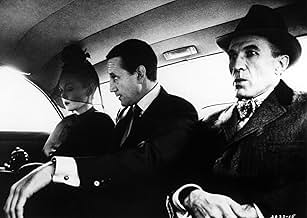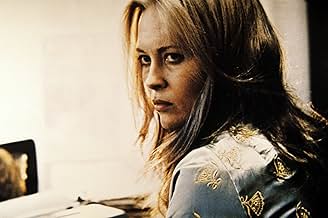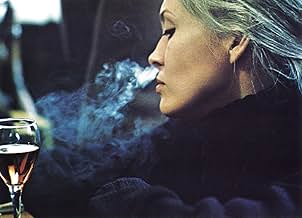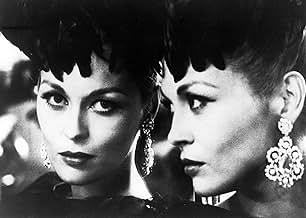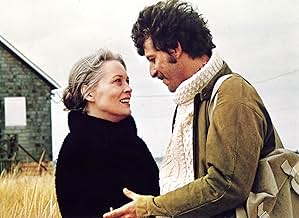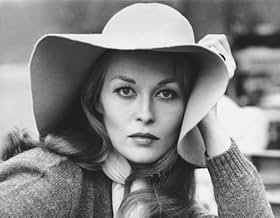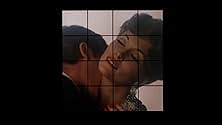Once famous model Lou Andreas Sand recalls her past as she tries to find success in the New York modeling world, her affair with ad exec Mark, her friendship with fashion photographer Aaron ... Read allOnce famous model Lou Andreas Sand recalls her past as she tries to find success in the New York modeling world, her affair with ad exec Mark, her friendship with fashion photographer Aaron Reinhardt, and her downward spiral.Once famous model Lou Andreas Sand recalls her past as she tries to find success in the New York modeling world, her affair with ad exec Mark, her friendship with fashion photographer Aaron Reinhardt, and her downward spiral.
- Awards
- 1 nomination total
Featured reviews
PUZZLE OF A DOWNFALL CHILD is about a famous fashion model who's burnt out on the business and moved to a cottage by the sea to reflect on her splintered life. Years of being treated as an object by photographers, stylists, agents, etc., has left her with a serious identity complex and an addiction to pills...although flashbacks show that she was somewhat unhinged to begin with. The film isn't really that good; as critic Pauline Kael noted when the film came out, "I have a constitutional aversion to movies about women whose souls have been lost, stolen or destroyed, especially when it isn't made clear -- and it never is -- whether the heroine had a soul in the first place." But what IS very special about the movie is simply the way that Dunaway LOOKS. Rigged out in precise red lipstick, false eyelashes and liquid eyeliner, she's meticulously photographed by director Jerry Schatzberg, a former lover and onetime fashion photographer. The story is inspired by the true life life of Anne Saint Marie, a fashion model who later came unglued. Schatzberg taped conversations with Anne Saint Marie and used her comments as a framing device for the story. Not a great film, but an interesting one nevertheless.
Fashion model Lou Andreas Sand (Faye Dunaway) struggles with work and life. She struggles with relationships, with men, and with sex. She struggles with loneliness and with mental breakdown.
It's all about Faye Dunaway. It's a character study. It's well-made. Faye is bringing the same damage as she will in Chinatown. She's magnetic.
It's all about Faye Dunaway. It's a character study. It's well-made. Faye is bringing the same damage as she will in Chinatown. She's magnetic.
Just as in Mahogany, audiences are supposed to forget the very well-known fact that models start their careers young. You can't say, "I want to be a model" when you're in your thirties and get discovered. Most models have to retire at that age because they're too old. So, when Faye Dunaway wants to become a model in Puzzle of a Downfall Child, we have to just nod and smile. We also have to nod and smile when she's caught unawares by how critical the modeling industry is. She's told to lose fifteen pounds, and she acts shocked. Models are torn to shreds on a daily basis. It's not a glamorous industry, despite the beautiful clothes and photographs. Why are we nodding and smiling? Because Faye Dunaway gives a great performance and we want to watch it. She tells her story in flashbacks to a journalist, so the film is a bit "1970s", but her acting is worth the funky zooms and long, aimless walks along the beach.
There's an incredible scene that acting teachers and coaches should show their students. Faye is on the phone with Roy Scheider, and she wants him to come over to her place. He keeps refusing, and with every line of dialogue, Faye gives a different expression. She could have just played the entire scene as "pleading" and read the lines as written, but instead, she said one line straight-forward, another teasing with a passive aggressive accusation, and another as a distraction, and yet another with desperation. I had a teacher once who told his students to write the motivation in the margin next to every line of dialogue. It's as if Faye were teaching that course, and to see her breaking down is a lovely piece of acting.
If you like that classic 1970 style of filmmaking, stories about successful models who have regrets along their climb to the top, or want to see a different Faye Dunaway than Mommie Dearest or Network, definitely check this one out.
There's an incredible scene that acting teachers and coaches should show their students. Faye is on the phone with Roy Scheider, and she wants him to come over to her place. He keeps refusing, and with every line of dialogue, Faye gives a different expression. She could have just played the entire scene as "pleading" and read the lines as written, but instead, she said one line straight-forward, another teasing with a passive aggressive accusation, and another as a distraction, and yet another with desperation. I had a teacher once who told his students to write the motivation in the margin next to every line of dialogue. It's as if Faye were teaching that course, and to see her breaking down is a lovely piece of acting.
If you like that classic 1970 style of filmmaking, stories about successful models who have regrets along their climb to the top, or want to see a different Faye Dunaway than Mommie Dearest or Network, definitely check this one out.
Dud story about a fashion model falling apart is given such a handsome, chilly look, precise editing and lovely music passages that one is nearly tempted to call "Puzzle of a Downfall Child", at the very least, half a success. Still, Faye Dunaway isn't charismatic enough to carry the weight of a leaden character portrait, one wherein the heroine feels her soul fragmenting yet also questions whether she still possesses a soul to lose...or perhaps never had one to begin with (she is a lapsed Catholic, after all). Dunaway's model (with the self-made-up name of Lou Andreas Sand!) is flashing back on her career while an ex-paramour and colleague tape-records her shallow reminiscences of bitchy, badgering photographers and lovers. Her earliest memories (particularly her first modeling assignment posing with an unleashed falcon) are quite vivid, but there's no substance or self-effacing humor in Carol Eastman's screenplay (penned under the alias of Adrian Joyce). Director Jerry Schatzberg, who worked on the original story with Eastman, allows Dunaway too much room to wail and wither and carry on, and after awhile she's as isolated from us as she is from her work. Adam Holender's cinematography and Michael Small's music are each exquisite, and Evan Lottman's editing also deserves praise; however, these attributes are in the service of a barren melodrama so removed from reality that the episodes are practically devoid of anything interesting. It's almost as if that's the point. *1/2 from ****
Faye Dunaway has always been my favorite actress and this movie provides a great showcase for her talents. She plays a very neurotic model who cannot even trust her own memories. The movie is done in a non-narrative style that was fairly common in the 1970s, with events shown out of order, and that device is used very effectively to portray the protagonist's instability. This is one of the overlooked movies from a period that produced many great and challenging films; I don't believe it's ever even been on video.
Did you know
- TriviaWhen being interviewed about the film by documentarians Ted Demme and Richard LaGravenese, for their film A Decade Under the Influence (2003), co-star Roy Scheider expressed in a flustered manner, "I had never been involved in a film project that spent so much time studying how a woman drinks her tea!"
- Quotes
Lou Andreas Sand: I am rather a recluse... I do not socialize very much.
- Crazy creditsThe ending credits show an image of Dunaway walking away in an entirely out-of-focus shot. The screen becomes smaller and smaller as the credits roll.
- ConnectionsFeatured in Discovering Film: Faye Dunaway (2015)
- How long is Puzzle of a Downfall Child?Powered by Alexa
Details
- Runtime
- 1h 45m(105 min)
- Color
- Aspect ratio
- 1.85 : 1
Contribute to this page
Suggest an edit or add missing content

